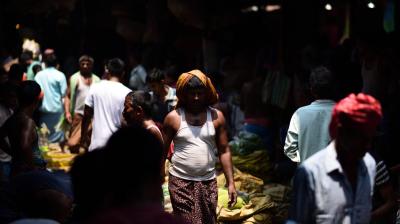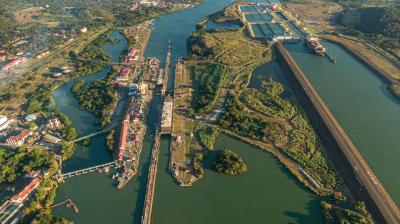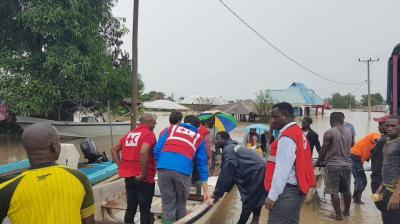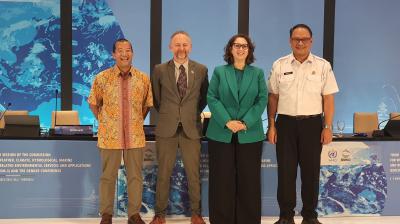Early Warnings for All Initiative Gathers Momentum in Africa
The Early Warnings for All Action Plan identified over 100 countries that would require assistance with implementation.
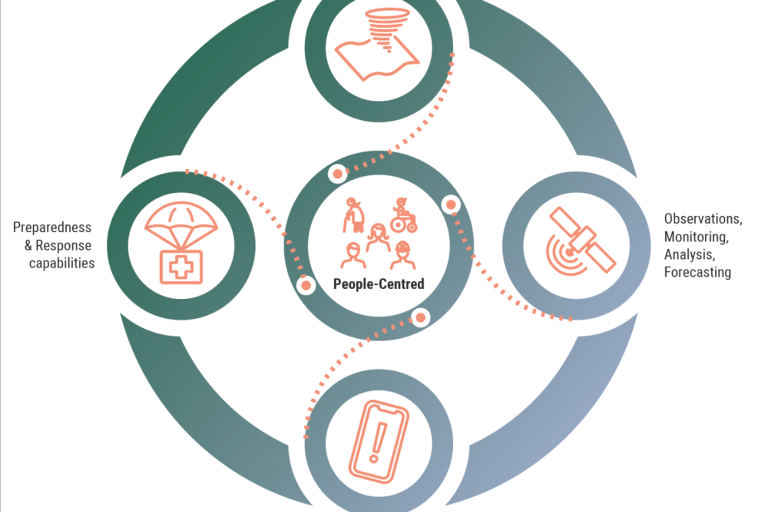
The Early Warnings for All Action Plan identified over 100 countries that would require assistance with implementation. Of those, 30 countries were short-listed by the United Nations for priority action, thirteen in Africa: Chad, Comoros, Djibouti, Ethiopia, Liberia, Madagascar, Mauritius, Mozambique, Niger, Somalia, South Sudan, Sudan and Uganda. This implementation is already fast moving ahead in Ethiopia, Madagascar, Mozambique, Somalia, South Sudan and Uganda, and scheduled to launch this month in Comoros and Mauritius. The five remaining priority countries are billed to start implementation early in 2024. Roadmaps that identify the technical, financial and other support required to ensure effective implementation have been developed to enable the countries to provide Multi-hazard Early Warning Services (MHEWS) by 2027. The national launch with consultation workshops were the first steps in forging partnerships for collaboration and coordination of the implementation.
Ethiopia - The national launch took place on 30 August as part of Ethiopia’s National Climate Outlook Forum. Representatives from the Government, donors and lead organizations for each of the four Early Warning for All pillars – the International Federation of the Red Cross (IFRC), United Nations Office for Disaster Risk Reduction (UNDRR) and WMO – were present. The Early Warnings for All Action Plan was endorsed by the Government and its partners as a concrete contribution to its implementation. A technical working group was created to draft the roadmap for national implementation, which will include a gap analysis on monitoring, observations and forecasting and definite steps to address these.
Uganda – There was strong Government support at the launch workshop from 15–18 November, which identified the expected deliverables. The national implementation plan and Roadmap are now being refined, and the national coordination mechanism being developed.
South Sudan - The launch workshop from 20–22 November attracted broad participation from the Government and there is still a continuing conversation with participants on governance and coordination. The Systematic Observation Financing Facility (SOFF) Steering Committee has approved the South Sudan funding request. The implementation will be supported by Geosphere Austria as a peer advisor and the African Development Bank as the SOFF Implementing Entity. The Food and Agricultural Organization of the United Nations (FAO) and WMO are working closely to support the South Sudan Meteorological Department.
The workshop identified country level gaps, such as the need for more efficient coordination between actors and for alignment of various initiatives. The meteorological and hydrological observation networks is sparse, hindering observation, monitoring and forecasting services. An in-country consortium with clearly defined roles and responsibilities is needed. The next step will be the development of the national roadmap.
Madagascar and Mozambique - The launch in Madagascar took place from 14–15 September and in Mozambique from 20–22 November. Both countries are prone to tropical cyclones hence have good baseline early warning systems (EWSs) and serves, but similar gaps and opportunities were identified in their EWS value chains. Both have the required legal framework for EWSs, however, they have a proliferation of ongoing EWS projects, which are often not end-to-end systems and sometimes do not involve national entities, thus are unsustainable. The Early Warnings for All initiative will bring better coordination, strengthen interpillar linkages and pillar gaps, and scale-up EWS to reach the local communities. Madagascar produced a draft roadmap at the end of the national workshop.
In addition to these activities, the WMO Regional Office for Africa organized a webinar for the 13 African priority countries on 30 October to introduce the UN Resident Coordinators to the Permanent Representatives to the WMO. The webinar was coordinated with the United Nations Development Coordination Office (UNDCO) Regional Office for Africa and included lead organizations for each of the four Early Warnings for ALL pillars: UNDRR, International Telecommunications Union (ITU), IFRC. It enabled participants to understand the vital work being conducted on the ground by the United Nations and national institutions, including the National Meteorological and Hydrological Services. It created a platform for a better engagement of UN Resident Coordinators with heads of NMHSs and underlined the role of UNDCO in the successful and sustainable implementation of Early Warnings for All.
- Region:
- Region I: Africa



